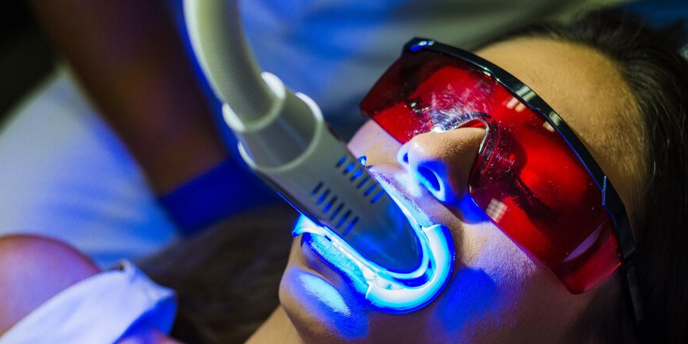
Teeth whitening has become increasingly popular as people seek to enhance their smiles and boost their confidence. This article will delve into the world of teeth whitening, shedding light on the costs involved, the different processes available, and the popular methods that individuals can consider.
Tooth discoloration can result from various factors, and understanding these contributors is crucial in determining the most effective approach for teeth whitening. Here are some key factors that contribute to tooth discoloration:
Age: As individuals age, their teeth naturally undergo changes in color. Over time, the enamel (the outer layer of the teeth) becomes thinner, revealing the underlying dentin, which is naturally yellowish. This can lead to a gradual darkening or yellowing of the teeth.
Food and Beverage Choices: Certain foods and beverages are known to stain teeth due to their pigments or acidic nature. Examples include:
- Coffee and Tea: The dark pigments in coffee and tea can adhere to the enamel, causing stains over time.
- Red Wine: The tannins in red wine, along with its deep color, can contribute to tooth discoloration.
- Berries: Blueberries, blackberries, and other deeply pigmented fruits can stain teeth.
Tobacco Use: Both smoking and smokeless tobacco products contain chemicals that can cause severe tooth discoloration. The tar and nicotine in tobacco can lead to stubborn stains that are challenging to remove through regular oral hygiene practices alone.
Poor Oral Hygiene: Inadequate oral hygiene practices, such as infrequent or improper brushing and flossing, can contribute to the accumulation of plaque and tartar on the teeth. This not only affects overall oral health but can also lead to surface stains and discoloration.
Genetics: Genetics can play a role in determining the thickness and color of tooth enamel. Some individuals may inherently have thinner enamel or teeth that are more prone to discoloration, making them more susceptible to stains.
Medications: Certain medications, such as tetracycline antibiotics, anti-hypertensives, and antipsychotics, can cause intrinsic tooth discoloration. This occurs when the drugs affect the formation of enamel or dentin during tooth development, leading to permanent staining.
Trauma: Trauma to the teeth, such as an injury or impact, can cause intrinsic discoloration. The affected tooth may appear darker due to changes in the internal structure or blood supply.
Excessive Fluoride: While fluoride is essential for dental health, excessive exposure to fluoride during tooth development (fluorosis) can result in tooth discoloration. This is often characterized by white or brown streaks on the enamel.
What is Teeth Whitening?
Teeth whitening is a cosmetic dental procedure aimed at lightening the color of the teeth and removing stains or discolouration. It is a popular and non-invasive way to enhance the appearance of one’s smile by achieving a brighter and whiter set of teeth. The process primarily targets surface stains on the enamel or discoloration within the tooth.
How Teeth Whitening Works
Bleaching Agents:
- The most common method involves the use of bleaching agents, usually hydrogen peroxide or carbamide peroxide.
- These agents break down into oxygen molecules, which enter the enamel and dentin, reacting with the discolored or stained molecules and breaking them apart.
Removal of Stains:
- Surface stains on the enamel caused by food, beverages, and habits like smoking can be effectively removed through teeth whitening.
- Intrinsic stains, which are stains within the tooth structure, may also be addressed, especially with professional treatments.
Light or Heat Activation:
- In some cases, the whitening process is accelerated with the use of a special light, laser, or heat. This is often seen in professional, in-office treatments.
- The light or heat helps the bleaching agents penetrate the tooth more effectively.
What are The Methods of Teeth Whitening?
- In-Office Professional Whitening:
- Conducted by a dentist in a dental office.
- High-concentration bleaching gel, often containing hydrogen peroxide or carbamide peroxide, is applied to the teeth.
- Light or laser may be used to enhance the whitening process.
- Provides rapid and significant results in a single appointment.
- At-Home Whitening Kits:
- Over-the-counter kits or custom trays provided by a dentist.
- Lower concentration of whitening agents compared to in-office treatments.
- Involves applying a whitening gel to custom-fitted trays and wearing them for a specified period at home.
- Results may take several days to weeks.
- Whitening Strips:
- Over-the-counter adhesive strips with a layer of whitening gel.
- Applied directly to the teeth for a specified period.
- Generally more affordable than custom trays but may provide less consistent results.
- Whitening Toothpaste:
- Contains mild abrasives or special chemicals to remove surface stains.
- Suitable for maintaining whiteness rather than achieving significant whitening.
- Regular use can help prevent new stains.
- Whitening Gels and Pens:
- Over-the-counter products with a gel or pen applicator.
- Applied directly to the teeth for targeted whitening.
- Convenient for touch-ups or spot treatments.
- Natural Remedies:
- DIY methods using natural substances believed to have whitening properties.
- Examples include baking soda, activated charcoal, oil pulling, and certain fruits.
- Effectiveness can vary, and caution is advised to prevent potential damage.
- Prescription Whitening Products:
- Higher-strength whitening products prescribed by a dentist.
- Customized trays or gels with a stronger concentration of bleaching agents.
- Provides more controlled and supervised at-home whitening.
- Combination Treatments:
- Some approaches combine in-office and at-home treatments.
- For example, a dentist may perform an initial in-office treatment and provide custom trays for follow-up at-home use.
What is The Cost of Teeth Whitening in Nigeria?
The cost of teeth whitening in Nigeria can vary based on several factors, including the method of whitening, the dental professional performing the procedure, and the location of the dental clinic. At Blanche Dental Clinic, the cost of N100,000 (One hundred thousand naira)
Where Can I Get My Teeth Whitening Done?
You can get your Teeth Whitening done at Blanche Dental Clinic:
- 2b Adebisi Popoola Crescent, off Victoria Arobieke Street, Eti-Osa, Lekki 105102, Lagos.
- Suite K182, Road 5, Ikota Shopping Complex, V.G.C, Eti-Osa, Lekki 105102, Lagos.
- 7 Joseph Street, Opebi, Ikeja 100281, Lagos.
- 84 Kwame Nkrumah Crescent, Asokoro, Abuja.


